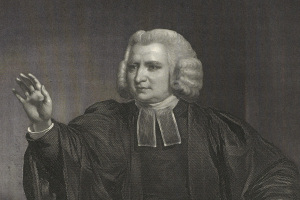The early Methodists were viewed by their opponents as dangerous extremists: they had visions, fell into trances and some even developed a reputation for possessing supernatural power. Likely for that reason, some of the letters were written in a complex 18th century shorthand developed by John Byrom, sometimes inter-mixed with Latin, Greek and Hebrew.
The Oxford University Press edition is the first of two volumes containing all 700 surviving letters of the preacher, who co-founded Methodism with his brother John, written over sixty years from 1727 to 1788. Dr. Lloyd is one of a handful of people who have learned to read the shorthand and spent ten years to complete volume 1 of the project with his co-editor. “The publication of this collection will shine a light on a remarkable man living in one of the most significant periods in British history. Charles Wesley was more than just a hymn writer. As co-founder of the Methodist movement, he established a family of Churches with an estimated 75 million members and one which is still growing in many countries.

Permission granted by The John Rylands Library, The University of Manchester, and the Trustees for Methodist Church Purposes
"The early Methodist movement attracted the young, the rebellious and sometimes the downright eccentric, which is somewhat removed from the image of Methodism today. Wesley’s genius as a preacher and religious leader contributed to the birth of the evangelical movement, probably the greatest success story of the modern Church. His life and ministry, even within Methodism, have received scant attention, so we are pleased that this collection will change that.”
Professor Newport said, “These letters tell the fascinating story of a man who struggled against depression and crises of faith to create poetry that still has the power to move and inspire. They show Wesley as a devoted, but sometimes rather puzzled, family man who struggled at times to curb his young wife’s extravagance. “Wesley was an entertaining and forthright correspondent; his letters paint in vivid detail the everyday reality of 18th century life with its squalor, colour, laughter and tragedy.
“In short, the letters present a rich tapestry of public, private and religious life in Britain at a time of rapid economic and social change, seen through the eyes of a man who ministered to the urban poor and mixed with the social elite.”
(1) Or The Fall and the kids on "South Park", if you are under the age of 40.






Comments